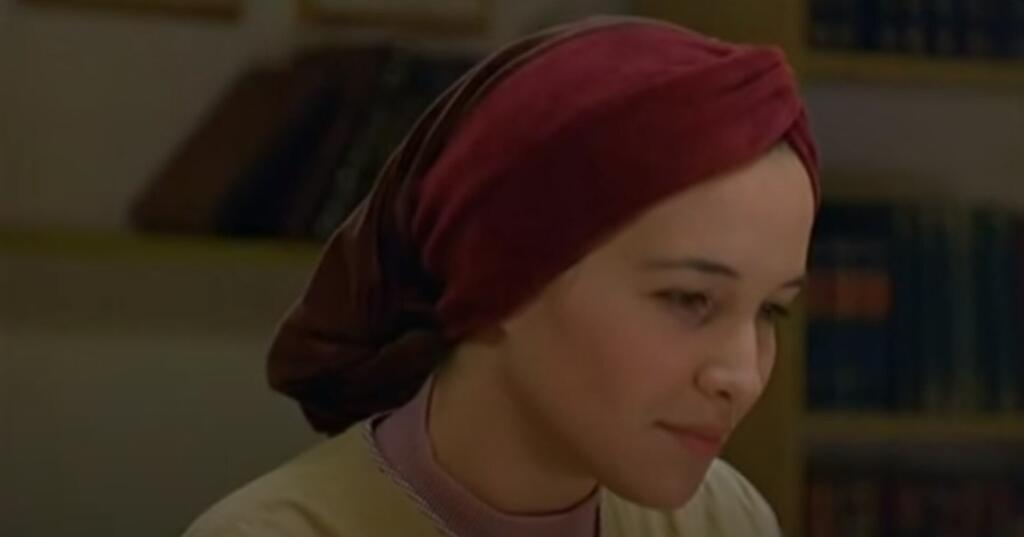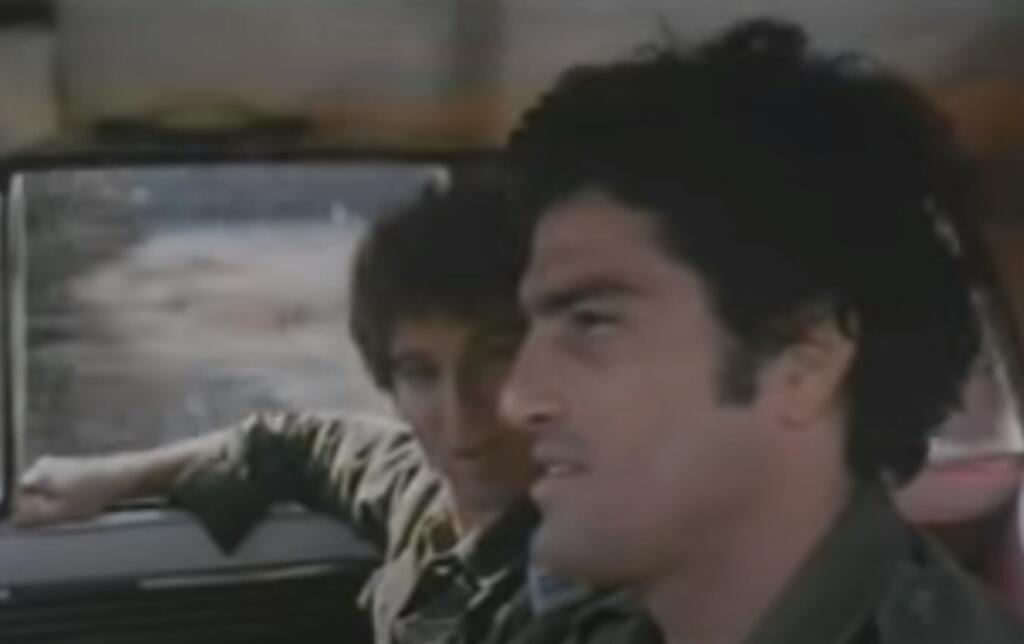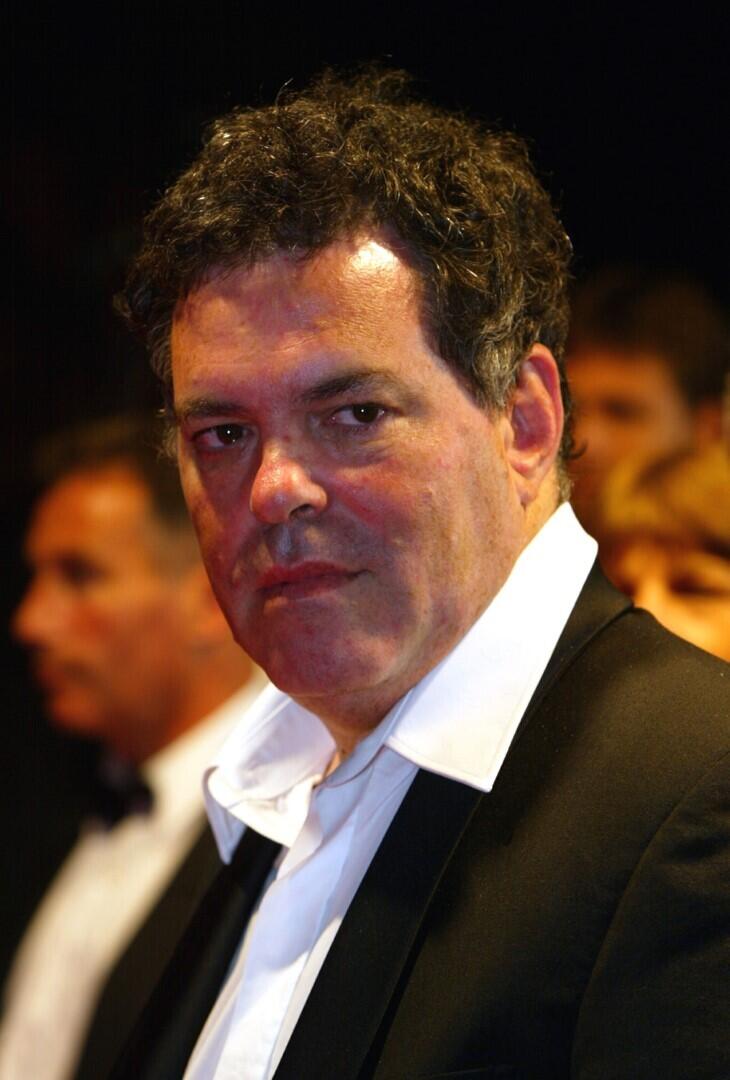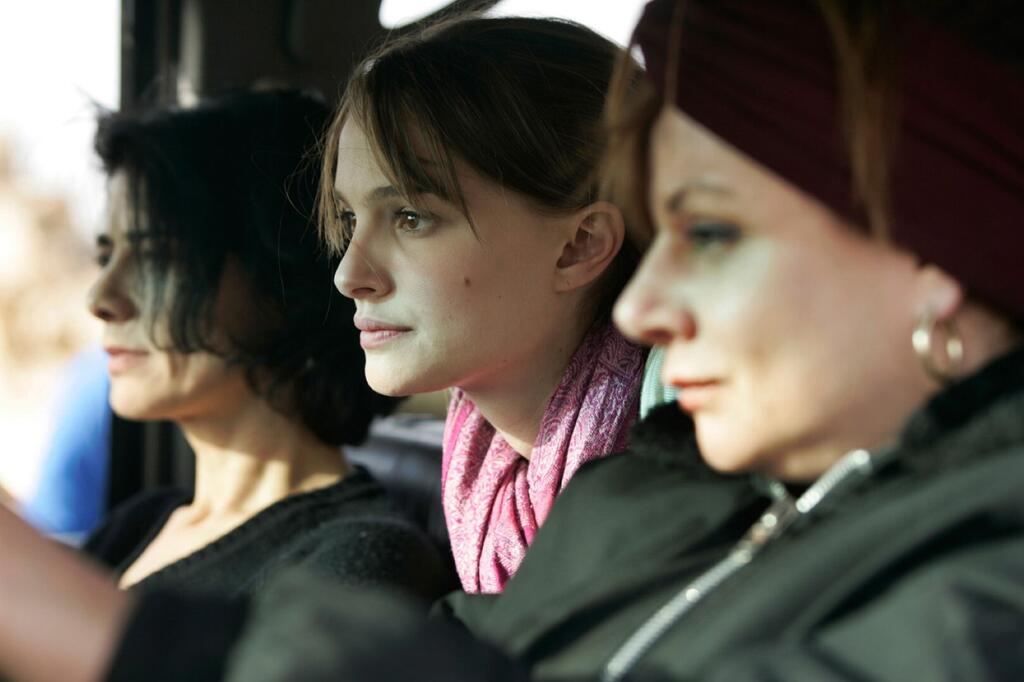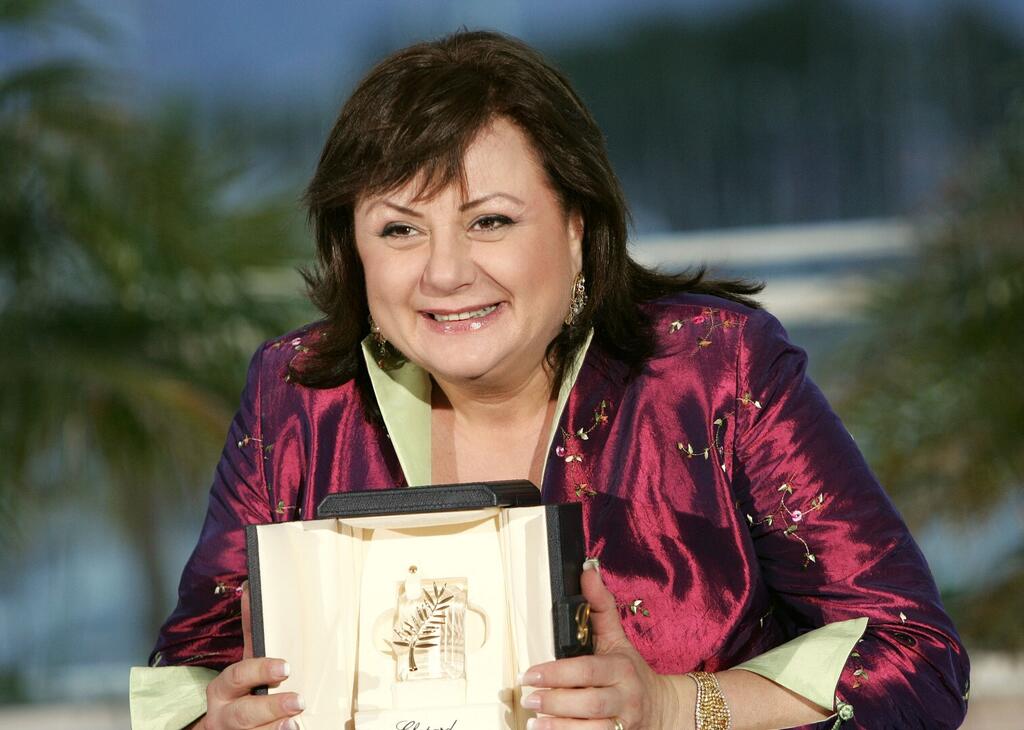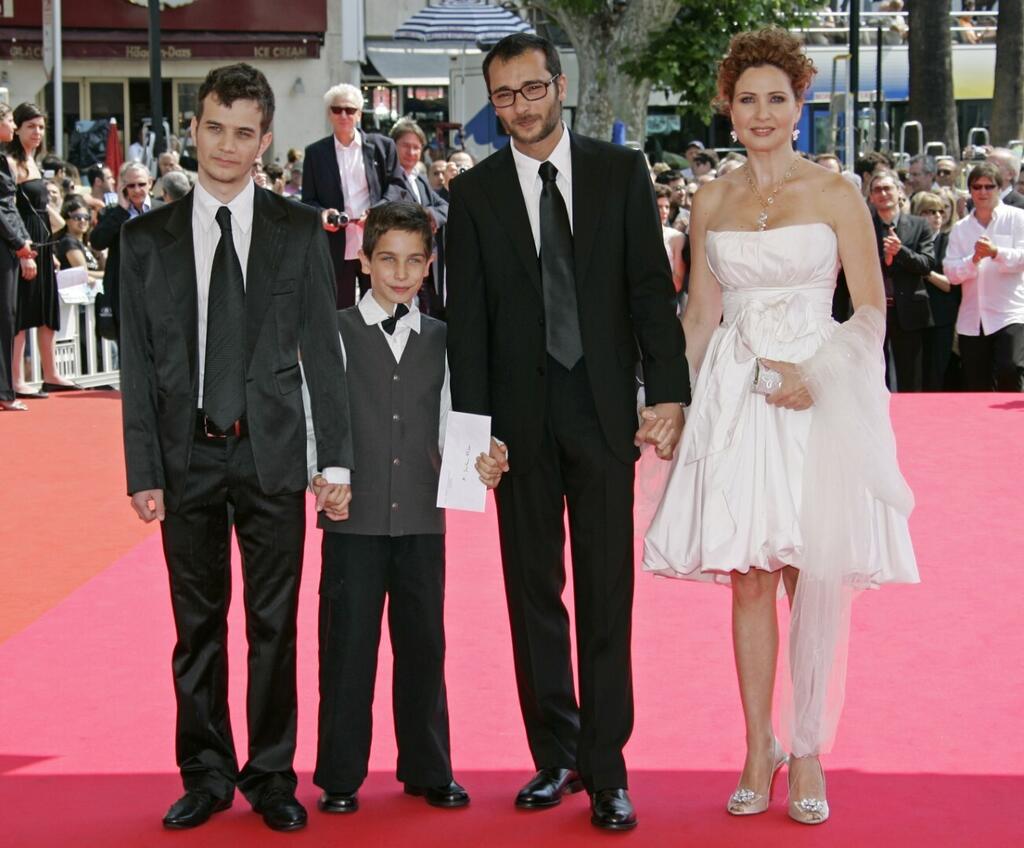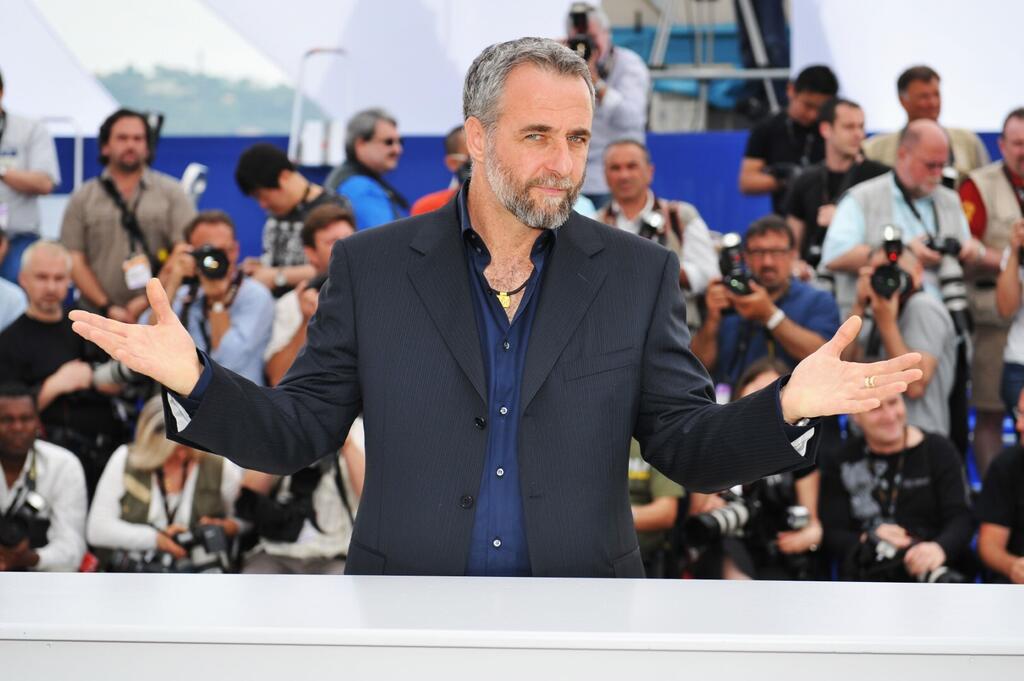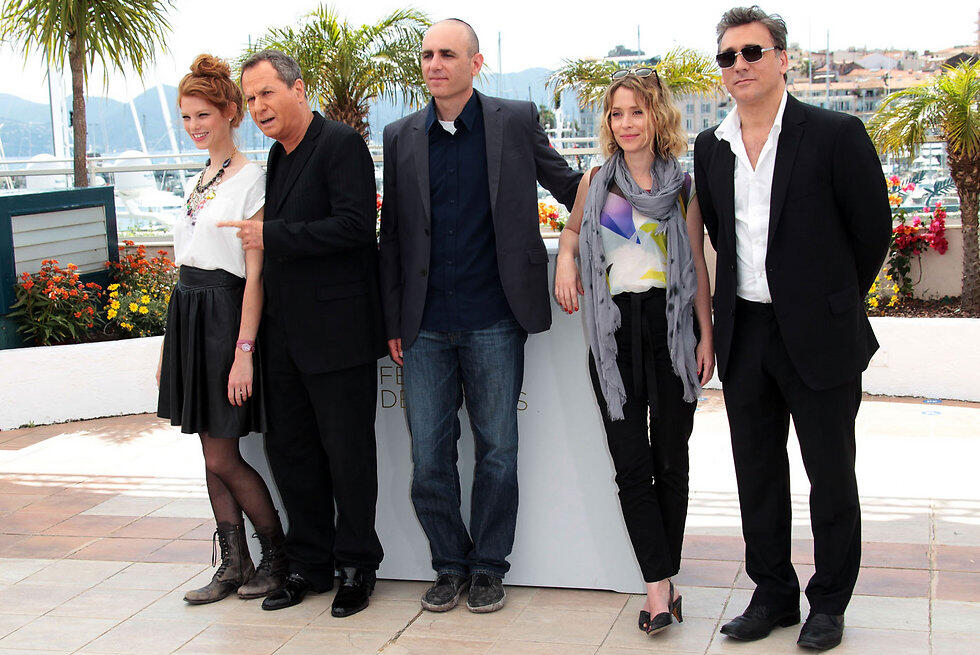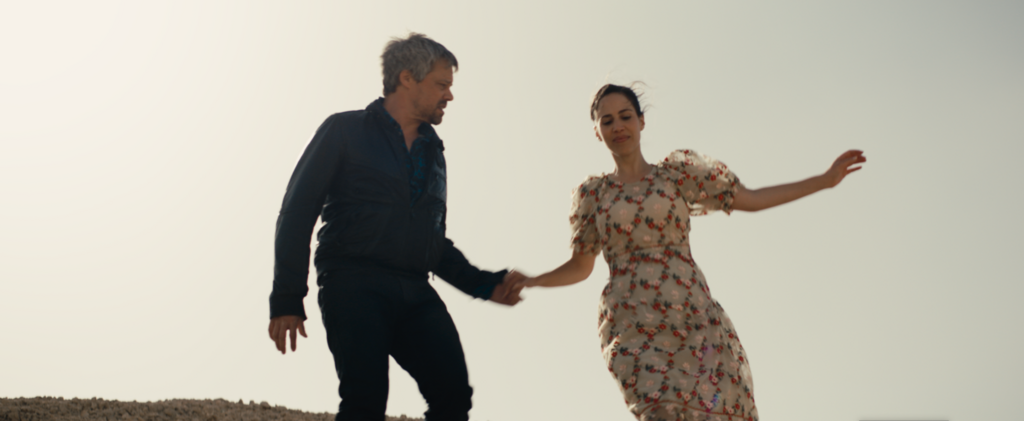Ahead of the 77th Cannes Film Festival, which is taking place these days, we reminisce about all the Israeli films that entered the official competition at Cannes. While the first part of the article reviewed the films from the 1960s to the mid-1970s, the second part follows the times when Israeli cinema was in its prime.
Kadosh (1999)
After 25 years when not one Israeli film managed to get into the official competition at Cannes, Israeli cinema presented "Kadosh", by director Amos Gitai, which marked the end of the long absence. "Kadosh" tells the story of Rivka (Yael Abecassis), an ultra-Orthodox woman from the Mea Shearim neighborhood in Jerusalem who is having trouble getting pregnant and the community rabbi forces her to leave her beloved husband (Yoram Hattab) to allow him to marry another woman and become a father.
At the same time, Rivka's younger sister, Malka (Meital Barda), is in love with a handsome singer (Sami Huri) who chose to live outside the community, but her family intends to marry her off to a yeshiva student (Uri Klauzner) against her will. The ultra-Orthodox world featured in "Kadosh" greatly intrigued the festival audience and the film was met with rave reviews, extensive media coverage (the media were intrigued as to how they agreed to make such a film in Israel and what was the reaction of the rabbis) and it has been bought for distribution in various countries.
The 1999 Cannes festival was held at the same time the Israeli general elections took place, resulting in the defeat for the incumbent Prime Minister Benjamin Netanyahu and a victory for Ehud Barak. The press was interested in the election process and questioned the Israeli delegation on the issue. "The ultra-orthodox party wants to take power in the country," declared Gitai. "This film is my way of voting in the upcoming elections and influencing the decision of the Israelis – which may result in either being quashed by the rabbinical power or being an open and democratic society."
In order to exercise their civil right, some Israeli film and media people who were in Cannes took a ride on Arnon Milchan's private plane, went to Israel to vote and then returned with him to the Riviera. "Kadosh" did not win any awards, but it marked the onset of Gitai's seven good years at Cannes: the productive and controversial director became a household name at the Cannes festival - not many international directors succeed in entering the competition with four films in a row.
Kippur (2000)
Twenty-seven years after Amos Gitai was injured during a rescue mission of a Skyhawk pilot who had crashed in Syrian territory during the Yom Kippur War, he arrived in Cannes with "Kippur", where he revisited all the memories from that traumatic event.
"After the war, I didn’t want to remember the incident. I wanted to forget. Not even my closest friends knew about it. It was only years later that I was able to sit down and write about what I’d experienced,” Gitai recalls.
“When I got out alive from a helicopter that had crashed, that gave me strength. Not a lot of people will survive being on a helicopter that’s taken a direct missile hit, and if by some act of chance, you did live to tell – then you must now live life just as you please, and not give a damn. From thereon out, I decided I was going to do the things that I enjoyed doing and that brought me joy, and that I’d surround myself with people whom I related to. During the war, I was using the Super 8mm camera my mother gave me and so it was at that war that I began creating my first ever film images and was also reborn, myself.”
There is no doubt that "Kippur" is Gitai's best and most personal film. The premiere in Cannes was exciting and powerful and the critics thought it was a "brave film". The French Synopsis wrote: "War has never been shown in such a way on the cinema screen."
The media warmly embraced the cast that starred on the film - Liron Levo, Tomer Russo and Ran Kauchinsky, and "Kippur" was even marked as a film that would win one of the awards. For some reason the jury chose to deny and ignore it.
"I had a good feeling about 'Kippur'," Gitai said at the Cannes Film Festival. "So good that I decided to take my mother, who is almost 98 years old, to Cannes this time, so that she could be proud of me. I advised her to do some physical exercise before the trip so she could walk the red carpet with us."
Kedma (2002)
At the 55th festival, Gitai displayed "Kedma", which deals with an illegal immigrant boat packed with refugees heading toward the shores of the land of Israel shortly before the end of the British mandate and the establishing of the State of Israel. Some of the immigrants, refugees-survivors of the Holocaust, find themselves taking part in the battles of 1948 against the Arabs, who also become refugees.
During the festival, "Kedma" received mixed reviews: the French and Italian critics, who worshiped Gitai, praised the film ("Great cinema", "bravely confronting the myth of the establishment of the State of Israel"), while the Americans had reservations.
The festival was held during the second Intifada, and Gitai related to the situation in Israel at the press conference. "My film is a tribute to my country, which I love and am attached to its beauty, but I also want things to improve, and that's possible. There were days during filming when I was saddened by what was happening to us, and I wondered how long the stupidity would continue and people would die. I am dealing with a film about a bloody war, which determined the fate of our country and caused the refugee problem, which is the core of the conflict. We should look back to 1948, to a war in which shadows still have an impact. I would love to show my works to an Arab audience and have a dialogue with them."
Gitai arrived at Cannes accompanied by his cast actors: Moni Moshonov, Yussuf Abu-Warda, Helena Yaralova and Andrei Kashkar. "Helena's big, brown and beautiful eyes are breathtaking," reported Shlomo Papirblat, a correspondent for "Yedioth Ahronoth". "And she gets special attention from photographers. And Moni is amazed at how everyone in Cannes knows Gitai."
Free Zone (2005)
In 2005, Amos Gitai returned to the official competition of Cannes for the fourth and last time so far, with "Free Zone" starring Hana Laszlo, Natalie Portman and Hiam Abbass. The president of the jury director Emir Kusturica said he considered honoring all three Free Zone actresses with an award for best acting, also as a symbol of coexistence, among other things.
Eventually, Hanna Laszlo won the Best Actress award for her performance as a religious woman, a daughter of Holocaust survivors who established in the Negev after being expelled from Sinai and works as a trader of bulletproof vehicles. She makes her way to Jordan’s free-trade zone accompanied by an American tourist, to cash in her husband’s debt.
While the festival was going on, the world was celebrating the 60th anniversary of the surrender of the Nazis and the end of World War II in Europe, and Laszlo felt the need to mention her mother, a Holocaust survivor, in her acceptance speech.
"I would also like to share this prize with my mother, who is a Holocaust survivor of Auschwitz,"' said Laszlo in her moving speech. "I have a special thought for Holocaust survivors everywhere and victims in general, notably Arabs and Palestinians. It's high time we come together and try to work out solutions to this problem."
Tehilim (2007)
At the 60th Cannes Film Festival, the competition was particularly tough. Senior directors, such as Quentin Tarantino, Kim Ki-Duk, Cristian Mungiu and Cohen brothers tried to win the "Palme d'Or". The Israeli director Raphael Nadjari managed to enter this distinguished group with his film "Tehilim", which tells the story of a religious family in Jerusalem that is torn apart by the mysterious disappearance of their father after a tragic car accident.
Apart from Nadjari, the stars Limor Goldstein and Michael Moshonov and the boy Yonathan Alster showed up for the festive premiere. However, despite the cheers it received at the end of the screening, "Tehilim" was forgotten - and the achievements of two other Israeli films, which participated in other sections of the Cannes festival that year, overshadowed it and stole the show from it: "The Band's Visit" by Eran Kolirin, which received particular praise and won the "Un Certain Regard Award", and "Jellyfish" by Etgar Keret and Shira Geffen which won the "Caméra d'Or Award" for the best first feature film presented in one of the Cannes' selections.
The main competition of Cannes 2007 was also marked by the family battle between Moni Moshonov, who starred in the film "We Own the Night " by the American director James Gray, and his son, Michael, who starred in "Tehilim".
"It was really strange to compete against my son," Moni told me then, "It wasn't a battle between us, but a lovely moment in both of our careers. I'm proud of Michael. Michael proved beyond any doubt that his talent stands on its own merits." Moni's wife and Michael's mother Sandra Sade concluded: "I was so happy for both of them. First for Michael and then for Moni. The child first, then the father."
The Moshonovs will never forget this festival, also because of a traumatic incident they've experienced: the family was robbed in broad daylight on a side street of Cannes. "We stopped the car for a moment, and three masked young men opened the car door and snatched everything they could lay their hands on," Moni recalled. "I tried to fight them, until I realized that I was risking my life."
Waltz with Bashir (2008)
Director Ari Folman came to the 61st festival with his personal animated film "Waltz with Bashir", in which he dealt with the traumatic memories of his experience as a soldier during the 1982 Lebanon War. It received wide acclaim and praise from critics, crowning the moving work as a "masterpiece".
"Waltz with Bashir" appeared on many critics' top ten lists of the best films of 2008. Everyone was sure that the film would rightfully win the "Palme d'Or" or at least another prestigious award. But it failed to be nominated due to an outrageous and unfair judging scandal. At the end of the ceremony, I confronted Sean Penn, Canne's jury's president at the press conference, wondering how come "Waltz with Bashir" did not win any awards, despite the positive buzz around it.
Penn tried to push me away: "I am happy that the jury was not influenced by the buzz. I think it's an amazing film and I'm sure it will find its audience even without our help." Natalie Portman, who was also part of the jury, provided a weak excuse: "There were a lot of good movies this year." The disappointed Folman found consolation later in the 2008-9 awards season by winning the Golden Globe for Best Foreign Language Film and a nomination for the Oscars Academy Award.
In 2013, Folman returned to Cannes with "The Congress" which also used animation and opened the "Directors' Fortnight" at the Cannes Festival.
Footnote (2011)
At the 64th festival, one of the greatest achievements of Israeli cinema was recorded: the jury led by Robert De Niro presented the Best Screenplay Award to Joseph Cedar's "Footnote". The plot involves a great rivalry between Professor Eliezer Shkolnik (Shlomo Bar Aba) and his son Uriel (Lior Ashkenazi), both Talmudic Researchers from Jerusalem, as they compete for the prestigious Israel Prize - a drama that develops after the father is mistakenly informed that he won the prize.
There was also quite a bit of drama at the awards ceremony in Cannes: Cedar was informed late that he had to return to Cannes to participate in the ceremony. Although he managed to catch a flight, he did not make it in time to go on stage, and had to watch the ceremony on TV, while waiting at the Munich airport for a connecting flight to Nice. Sharon Harel, one of the producers of "Footnote", received the award instead. "Cedar is on his way from Tel Aviv to Cannes and he thanks the judges, everyone who worked in the film, the actors and his family," Harel said in her award-acceptance speech.
At the press conference that was held at the end of the ceremony, I asked the judges why Cedar was informed of the win late, which caused him to miss the happy moment. De Niro replied: "I don't know about the late notice, we chose 'Footnote' because most of us felt it was a well-written script." When Cedar finally arrived at Cannes, he was sent to the lavish banquet held in honor of the winners. "It's hard to put into words feelings that seem completely detached from life," Cedar said at the time. "I'm just happy that the film received such recognition."
Ahed's Knee (2021)
Since Joseph Cedar won the screenplay prize for his film "Footnote", Israeli cinema has been excluded from the battle for the Palme d'Or for a decade. In 2021, after a long absence, "Ahed's Knee ", Nadav Lapid's personal film, was accepted into the main competition.
The plot follows a film director (played by Avshalom Polak) in his mid-forties, which makes a movie about Ahed Tamimi, a young Palestinian activist. The director arrives in a remote desert village in South Israel to present one of his films when an officer for the Ministry of Culture (Nur Fibak) asks him to sign a political commitment document which upsets him. At the same time, the director is struggling to cope with his dying mother.
"It took me two weeks and a half to write the script, one month after the death of my mother, the film editor Era Lapid", said Lapid. "It burst out of me almost uncontrollably. The film is soaked in this death. I feel I have carved Ahed's Knee, like my previous films and even more so, from the depths of my soul, head, and body. When I look at it, I see the years of my life scattered on the screen. The film was made at the height of the COVID pandemic, with a sense of happiness and lust for life."
"Ahed's Knee " was awarded a particularly prestigious prize - the Jury Prize. In his acceptance speech, Lapid confessed in a choked voice that making the " Ahed's Knee" was not easy at all, and he moved the audience when he said: "My only regret this evening is that my mother is not here and cannot see all of this."
At the press conference that took place at the end of the ceremony, director Spike Lee, the president of the jury at the time, explained why the jury chose to give it the prestigious award. "What Lapid did was courageous. He talks about Israel and the bad things that I know are happening there. It's a country that if you say something bad about it, something bad can happen to you too. We felt the need to support his courage. It's a film that needs to be seen."
The judges, director Mati Diop and director Kleber Mendonça Filho, revealed that the award was given thanks to the artistic quality of the film, the sense of bold risk-taking and the radical form in which the film was made.



